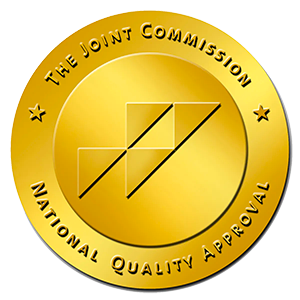By Bobby Shriver
The journey to mental health wellness remains filled with challenging barriers today, from entrenched stigmas and financial constraints, to therapy inaccessibility and more.
In recent years, mental health awareness has taken a larger foothold upon our mainstream consciousness, leading to more people having the courage to get the help they need. According to the Centers for Disease Control and Prevention (CDC), the number of adults receiving mental health treatment increased from 2019 to 2021. And the need for mental health treatment continues to rise, as about one in four adults suffer from a diagnosable mental disorder in a given year, Johns Hopkins Medicine reports.
But for many struggling with mental health, seeking help is easier said than done. The journey to mental health wellness remains filled with challenging barriers today, from entrenched stigmas and financial constraints, to therapy inaccessibility and more. And the frustrations these roadblocks create are worth acknowledging. Even so, finding healing and wellness despite these roadblocks is not only possible, but worth it.
Common Barriers to Achieving Mental Health Wellness
The National Alliance on Mental Illness (NAMI) says that one of the main barriers to seeking help for your mental health today is the stigma associated with getting treatment. You might think, It’s only for crazy people and fear you’ll be judged for seeking treatment, labeled as weak or incompetent, or viewed as unable to care for yourself. Sadly, this perspective can keep many from ever taking the first step towards mental health wellness.
Yet these roadblocks extend beyond long-running stigmas and stereotypes. Perhaps even more timely is the challenge so many face in simply being unable to access the therapy they need. “Of adults requiring or seeking treatment, only about 43% are able to connect with needed services,” Bournewood Health Systems CEO Maria Jackson says, “And for individuals in the LGBTQ+ and BIPOC communities, the rate is even lower at less than 30%.”
Consequently, people struggling with mental health face a healthcare system that’s overloaded or in short supply. At Boston Medical Center, for example, families experienced a 10-month, 170-person waitlist for mental health treatment for their children in 2021, The Washington Post reports. Even adults have dealt with increased therapy inaccessibility, as a 2021 American Psychological Association survey indicated that 65% of responding psychologists reported zero capacity for new patients and longer waitlists than in 2020.
Even if you can finally access treatment, you may experience the challenge of finding the right medication for specific needs like depression.
Even if you can finally access treatment, you may experience the challenge of finding the right medication for specific needs like depression. Selecting a depression treatment can be a trial-and-error-process, as antidepressants can work well for some, but not others. As a result, those trying a new medication can struggle with a lack of sleep, experience unpleasant side effects, or even deal with worsening depression, according to EverydayHealth.com. This difficult process, along with other challenges like treatment costs and insurance issues, can leave many frustrated and discouraged.
How to Get Help for Mental Health When Roadblocks Arise
If your therapy journey has taken longer than you thought due to various roadblocks, it can be tempting to give up and believe you simply can’t get help for mental health. “It’s important to validate those feelings,” Jackson says. “[You] are not alone … the bottom line is that recovery takes time.”
With that said, Jackson also acknowledges that it’s important not to compare yourself to others who appear to be progressing slower or faster through treatment. “Treatment and wellness are very individualized experiences,” she says. “At any level of care, the goal is to get [you] to a level of functioning and wellness so [you] can participate in the next part of [your] journey.”

So when challenges arise, don’t lose heart. Recovery is possible. While illness is often thought of as a straightforward setback to overcome with clear solutions, the experience isn’t always the same for many struggling with mental health. However, it helps to realize that mental illness is temporary and not all-encompassing. It doesn’t define you, writes The Boston Globe’s correspondent Kara Baskin.
NAMI suggests that the right treatment can help you uncover the root causes of your mental health struggles and identify healthy self-care habits to live a more confident and emotionally balanced life.
And for those who don’t know how to get help for mental health or where to start, Jackson offers this advice: “Tell a supportive family member, friend, or coworker about it. Ask your supportive person to assist you with navigating the mental health system.” If you don’t have someone specific who can help? “Identify a supportive peer group that encourages your journey to wellness … frequent encouragement is a great motivator.”
Bournewood Health Systems Is Here to Help
Here at Bournewood Health Systems, we offer person-focused treatment programs from adult inpatient and partial hospitalization services to intensive outpatient and psychiatric and addiction services for adolescents. With over 135 years of experience in behavioral healthcare, our compassionate team is dedicated to providing respectful, evidence-based treatment and support for a wide range of needs, even when roadblocks arise. Contact us today to learn more.


